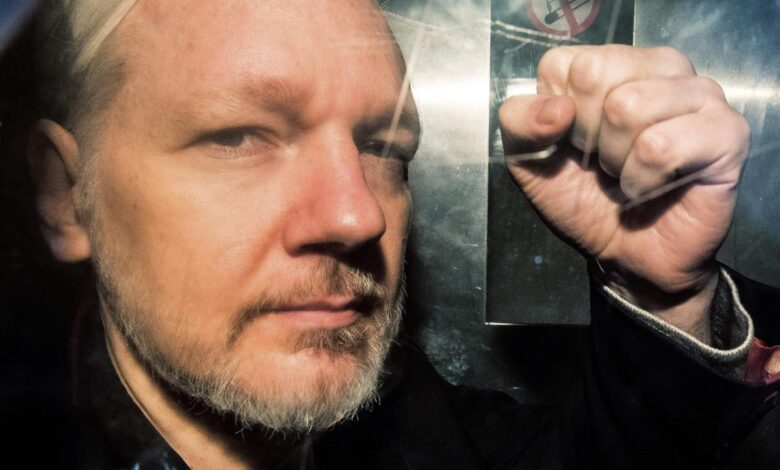Julian Assange ‘greatly energised’ by planned human chain around UK parliament, says wife

The morale and energy of WikiLeaks founder Julian Assange – held in jail for three-and-a- half years – has been greatly boosted by plans for a human chain to encircle Britain’s parliament, his wife has said.
Several thousand supporters of Asange, 51, have signed up to form the chain in which they will link arms and spread themselves around parliament in protest over his detention and possible extradition to the US.
If enough people show up on Saturday, campaigners plan to have the human chain spread over Westminster Bridge, turn right onto the South Bank, then return to parliament by means of Lambeth Bridge.
Assange’s wife, Stella Moris, told The Independent the human chain was part of a day of international demonstrations over his continued incarceration in Belmarsh Prison, as lawyers fight an attempt by the US authorities to force him to go on trial in America.
“The Houses of parliament are the seat of democracy, and Julian represents democracy at its strongest – government accountability and democratic movement,” she said.
“So the human chain around parliament symbolises the support people have for Julian’s release and for what he represents.”
The US has charged Assange with a total of 18 counts, some under the Espionage Act, and which in theory could carry a total of 175 years in jail.
They have accused him of publishing confidential military records and diplomatic cables, some of which were leaked to him by a former US army intelligence officer.
Assange and his supporters say he was exposing what they believe were war crimes committed by the US and UK as part of the so-called war on terror. He has received the support of journalism and press freedom organisations around the world, and a UN torture envoy has denounced the way he is being treated.
A lower court initially rejected the extradition request, stating it feared Mr Assange, an Australian citizen, would probably take his own life if put in US custody.
In April, an appeals court said Mr Assange could be sent to face trial in the US, leaving it up to then home secretary Priti Patel to review the case. She signed off on his extradition in June.
Ms Morris said the human chain was intended to be separate from the legal appeal that is taking place, and to highlight that every day he remained in Belmarsh Jail was “a punishment”.
“It’s to remind people that this is a political case, and his imprisonment is politically motivated,” said Ms Moris, who is the mother of two children with the WikiLeaks founder.
“Popular expressions over how intolerable that is are necessary in order to bring this to an end. I’m convinced the resolution here is not in the court, it’s in the governments getting together and actually finding a solution.”
She said the Australian government had said the case had gone on too long and should be brought to an end.
Mr Assange was arrested in April 2019 having spent five years in the Ecuadorean embassy in London after he sought political asylum.
He fought extradition to Sweden, where police said they wanted to investigate him over two accusations of sexual assault. Mr Assange has denied the claims and said he believed he would be taken to the US.
Ms Moris said her husband knew about the plans for the human chain and that it had given him a boost.
“It’s incredibly energising for him to know that he has support,” she said. “You know, it’s all over the world.”





